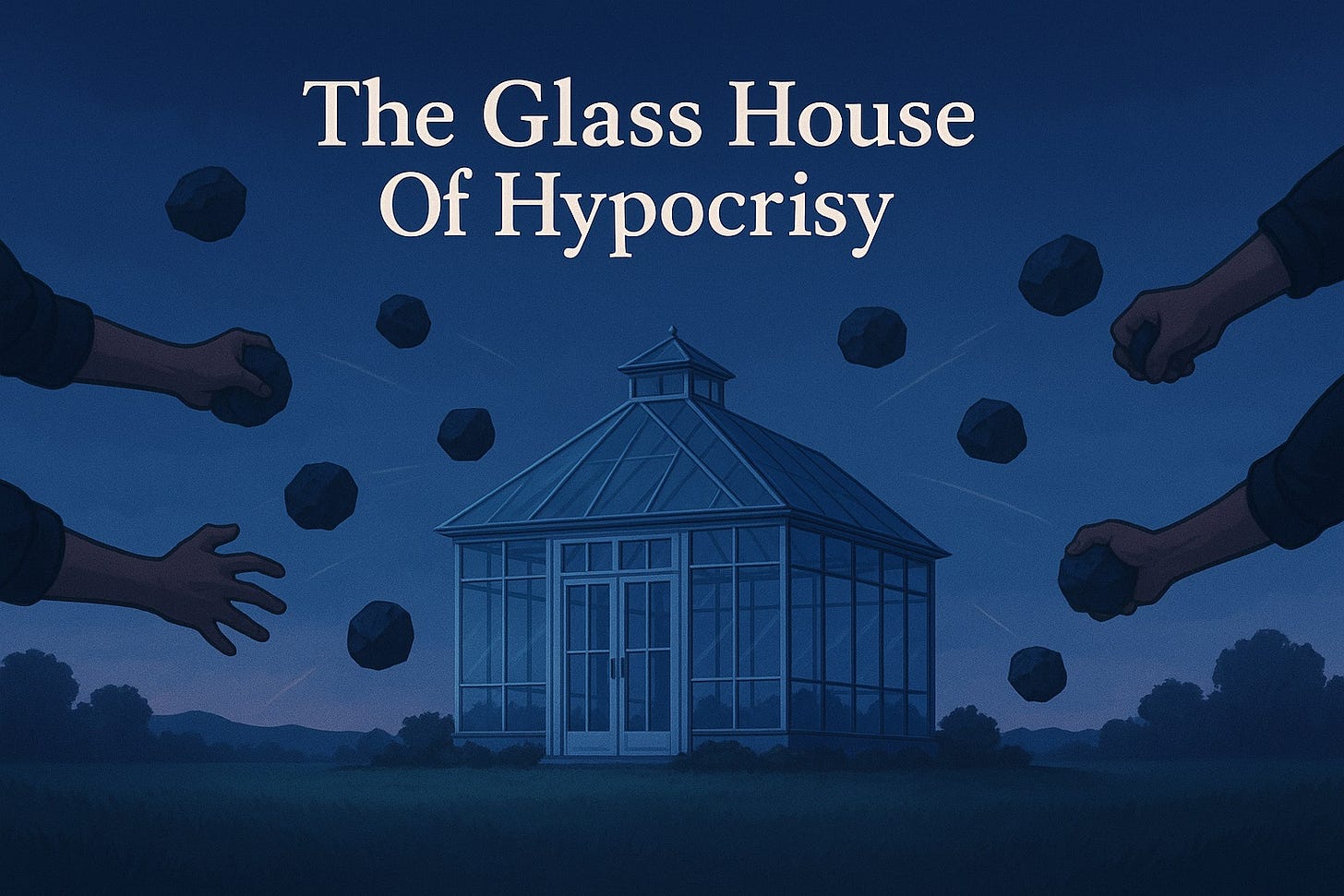The Glass House Of Hypocrisy
John 8:7, the verse about throwing stones, has little to do with stones and everything to do with exposing the hypocrisy of the heart.
John 8:7
When they persisted in asking Him, He straightened up and said to them, “He who is without sin among you, let him be the first to throw a stone at her.”
Who has never heard the old saying: “People who live in glass houses shouldn’t throw stones,” meaning people who have faults should not criticize other people, being applied to this very verse?
THE MISUSE OF JOHN 8:7
The phrase “He who is without sin among you, let him be the first to throw a stone at her” from John 8:7 is often misused. As pastor Gabriel Hughes wrote, “The ‘him’ Jesus referred to was the adulterer the woman was with. The law said to stone them together (Deut. 22:22). When you use John 8:7 incorrectly, you twist Scripture like the Pharisees.1”
This verse has nothing to do with glass houses or biased judgment but specifically addresses the hypocrisy of condemning the woman caught in adultery while ignoring the man, who was equally guilty under the Law of Moses.
THE GRAVITY OF ADULTERY
Adultery is a serious sin, not only against one’s spouse but also against God. When a couple marries, they become “one flesh” (Ephesians 5:31) and make a vow before God, who is the center of their union. To commit adultery is to show total disregard for both spouse and God. This is why Jesus taught that adultery is grounds for divorce (Matthew 5:32; Matthew 19:9), even though God hates divorce (Malachi 2:16). The fact that Jesus permits something God hates underscores the vile nature of adultery.
Yet, in the case of the adulterous woman, Jesus defends her from death while exposing the hypocrisy of her accusers, who failed to bring the man as required by the law (Deuteronomy 22:22).
CONCLUSION
The story of the woman caught in adultery reveals both the severity of sin and the grace of Christ. While adultery is a grave offense, deserving death under the Law of Moses, Jesus shows mercy, highlighting that all are sinners (1 John 3:4) and equally in need of grace.
That woman’s shame served a godly purpose. As Matthew Henry wrote, “Better our sin should shame us than damn us, and be set in order before us for our conviction than for our condemnation.2” Sometimes, having our sins exposed is the best thing that can happen to us.
We must turn to Christ, repent of our sins, and strive to sin no more (John 8:11). Only when we repent and believe can we find forgiveness and restoration, rather than condemnation.
https://twitter.com/Pastor_Gabe/status/1360042577307856896
Matthew Henry, An Exposition of the Old and New Testament, Vol. IV, (Robert Carter and Brothers, 1856), p. 652




